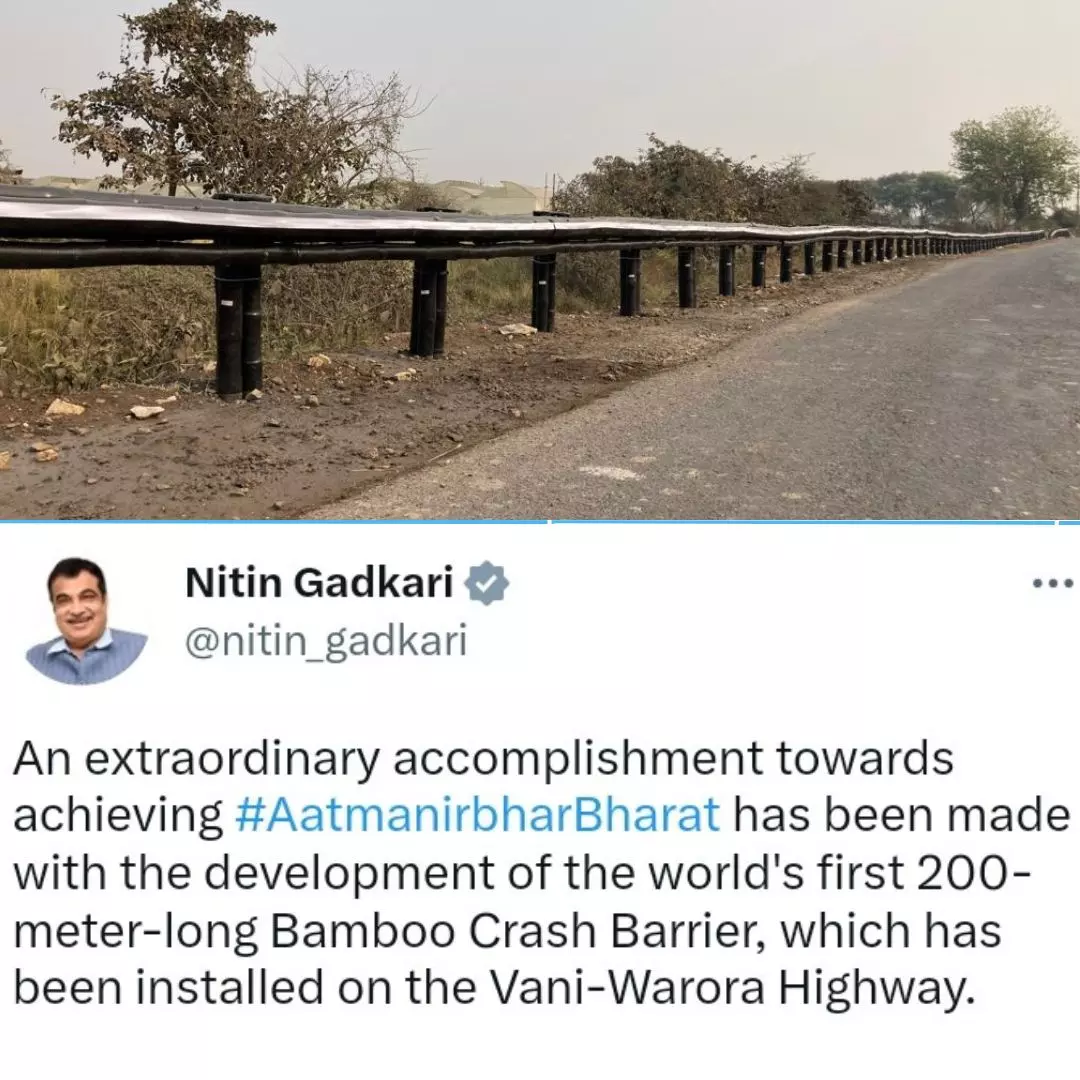Nitin Gadkari, Minister for Road Transport and Highways in India, took to Twitter on March 4th to announce a unique “world’s first” kind of initiative in Maharashtra. A 200-metre-long bamboo crash barrier was installed on the highway connecting Chandrapur and Yavatmal districts in Maharashtra.
It is a move that could replace the steel barriers with eco-friendly alternatives and uplift communities with a sustainable livelihood. Here’s what we know so far about the newly installed bamboo barricades.
Relying On Native Resources
Motorists passing by the Vani-Warora Highway have a new and greener sight awaiting them along the 200-metre-long stretch. A bamboo crash barrier now replaces the conventional steel barriers installed on the highway. Bringing this “remarkable achievement” to people’s notice, minister Gadkari tweeted that it is the first such initiative seen in the world. With this, Gadkari stated that the country is taking significant strides toward “Aatmanirbhar Bharat.”
An extraordinary accomplishment towards achieving #AatmanirbharBharat has been made with the development of the world’s first 200-meter-long Bamboo Crash Barrier, which has been installed on the Vani-Warora Highway. pic.twitter.com/BPEUhF7l2P
— Nitin Gadkari (@nitin_gadkari) March 4, 2023
India is the world’s second-largest cultivator of Bamboo after China, with an estimated 136 species and 23 genera spread over 13 million hectares. Utilising these resources that are available in abundance, Gadkari noted that the barriers offer a perfect alternative to steel. It addresses the environmental concerns of greener infrastructure and reduced steel waste. The crash barrier made out of bamboo has now been christened as “Bahu Balli.”
Achievement For Bamboo Sector
In the thread of tweets, Gadkari elaborates on the process, saying, “the bamboo species used in the making of this barrier is Bambusa Balcoa, which has been treated with creosote oil and coated with recycled High-Density Poly Ethylene (HDPE).”
After procuring the plant, it undergoes rigorous testing at various government-run institutions, such as the National Automotive Test Tracks (NATRAX) in Pithampur, Indore. It was only after that it gets rated as Class 1 during the Fire Rating Test of the Central Building Research Institute (CBRI) and accredited by the Indian Road Congress that it reached the Maharashtra road.
The bamboo species used in the making of this barrier is Bambusa Balcoa, which has been treated with creosote oil and coated with recycled High-Density Poly Ethylene (HDPE). This achievement is remarkable for the bamboo sector and India as a whole,… pic.twitter.com/CrTg8UzINF
— Nitin Gadkari (@nitin_gadkari) March 4, 2023
The bamboo barriers have a recycling value of about 50-70 per cent, compared to 30-50 per cent of steel barriers. The process also empowers many communities and industries, especially the rural and agriculture-friendly industry. It generates a sustainable livelihood for rural households and brings a dialogue for an eco-friendly switch on all fronts.
Also Read: Futuristic Step? India May Soon Get Its First Electric Highway
https://thelogicalindian.com/h-upload/2023/03/06/500x300_230287-untitled-design.webp
Trending
2023-03-06 06:56:35.0
‘World’s First!’ Bamboo Crash Barriers Installed On Maharashtra Highway











